What's behind China's 'racist' whitewashing advert?
- Published

A Chinese laundry detergent advertisement is causing widespread outrage online and is being dubbed the most racist commercial to be screened.
But racist advertising has form, and not just in China.
A black man walks in and gets 'washed' a different colour
The scene: a young Chinese woman is doing her laundry. In walks a black man, with some paint stains on his face.
They look at each other suggestively. She puts a tab of detergent into his mouth....
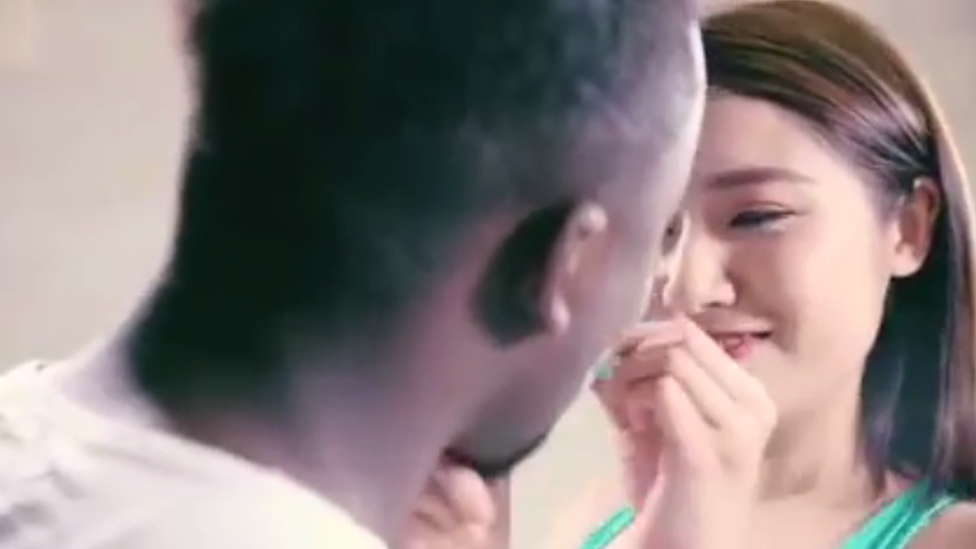
...and then shoves him into the washing machine.

Hey presto! He emerges a fair-skinned Chinese man.
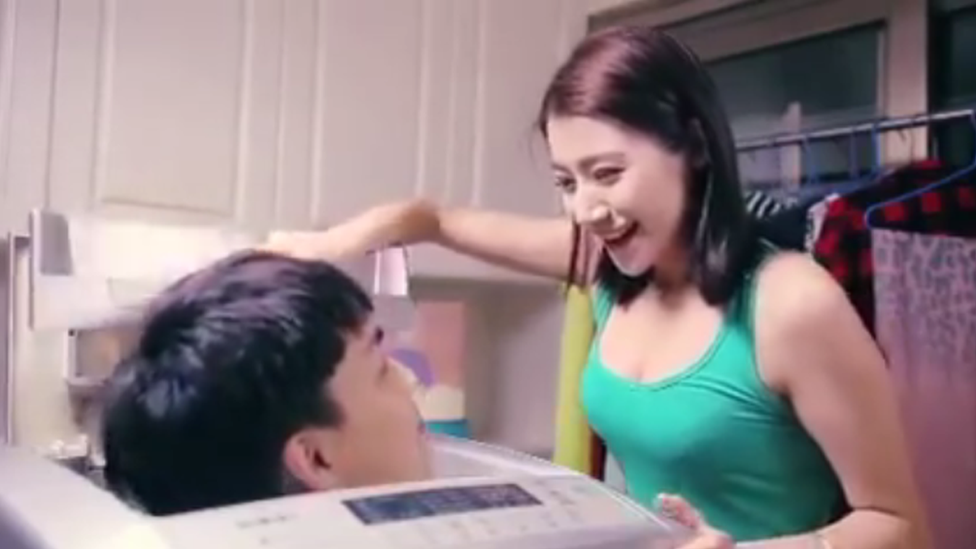
The lady doing laundry is apparently delighted by this development.
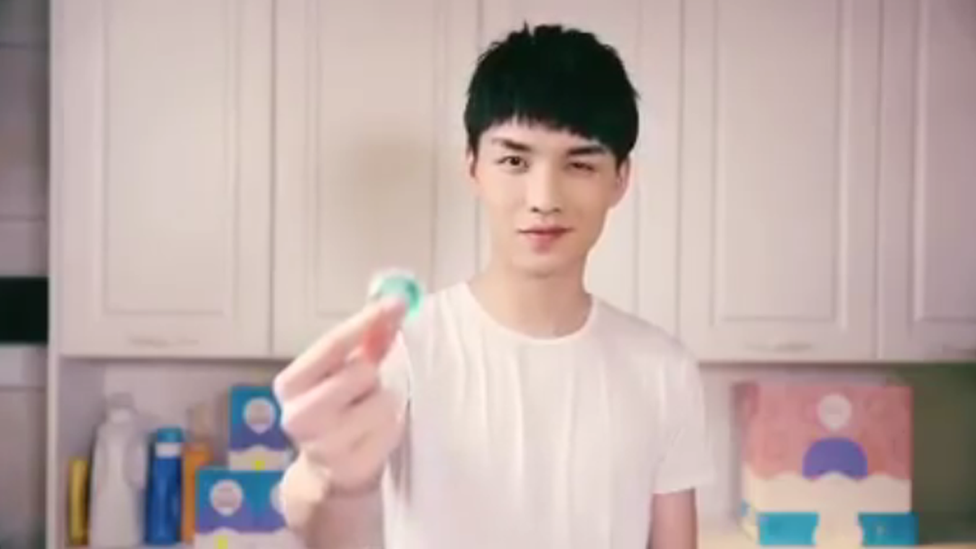
It is a month old but it is shocking the Internet now
It has appalled many on Facebook and other forums over the last 24 hours. But the ad itself is about a month old, having appeared on television and been shown at cinemas in China. At that time it didn't cause much of a furore with cinema-goers.
But then it was shared by US expat Christopher Powell, a musician with the Guiyang Symphony Orchestra, and by DJ Spencer Tarring.

Although the story was not covered widely by Chinese media, there were hundreds of comments on Chinese social media, with some calling the advert "awkward".
One user, @YY_CodingBear, said: "My lord. Do Chinese marketing people not have any racial education?"
However, another user said they did not see any problem with the advert.
The owner of the detergent has also commented
"I don't know much about the advertisement," the owner of Qiaobi laundry detergent, who identified himself as Mr Xia, told BBC Chinese's Grace Tsoi.
He said he did not realise it was racist until it was pointed out to him: "To be honest, I didn't really pay that much attention to the advertisement."
It mirrors an Italian advert for detergent, equally fraught with ethical issues, that does just the opposite - by washing a white man to black to advertise "coloured" laundry powder.
It's not the first time we have seen awkward advertising in China
The Darlie brand of toothpaste is called "black man toothpaste" in China.
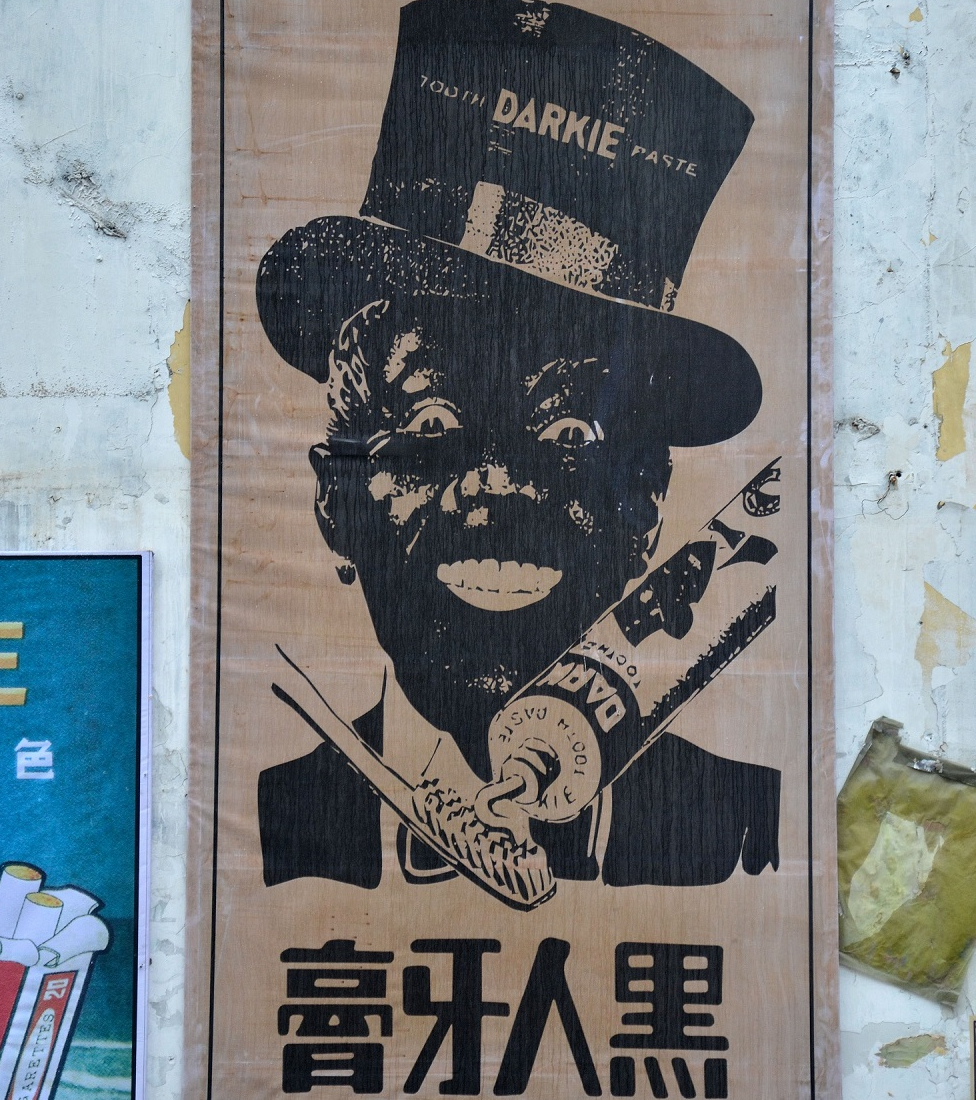
Darlie toothpaste used to be known as "Darkie" toothpaste, until it was rebranded.
The significance of the name change was lost on many, analysts say.
And recently in Hong Kong, an insurance advert showed a man dressed up like a Filipina domestic helper, with a blacked up face.
Chinese attitudes to race are complicated
A few years ago a well-known Chinese beer brand, Harbin, invited basketball star Shaquille O'Neal to endorse the beverage, presumably to expand into the global market.
The US NBA competition is massive in China, and stars like Kobe Bryant are hugely popular, so it shouldn't have been a controversial move.
But on Tianya, one of China's most popular forums, some netizens weren't happy, with some posting overtly racist and discriminatory comments.
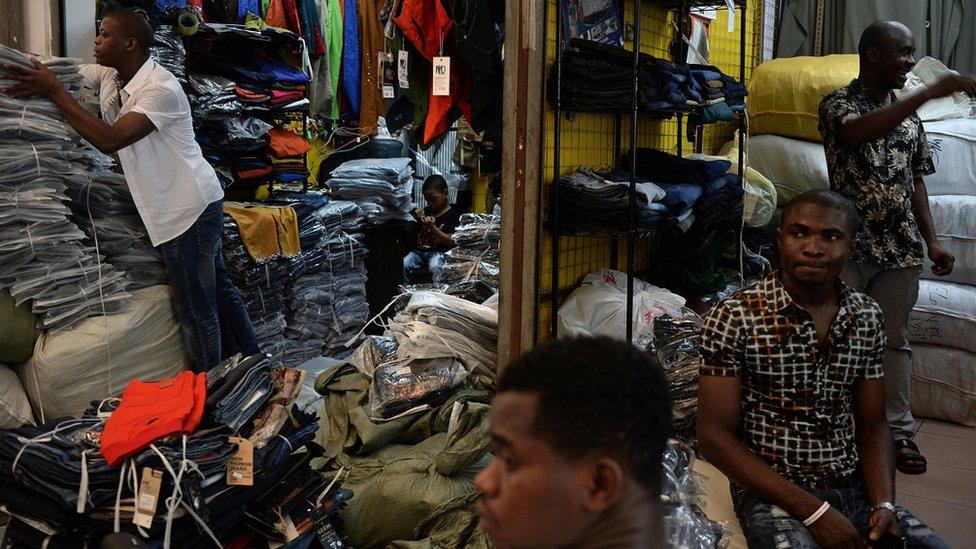
Only 600,000 foreigners live in China, a small portion of them black
Certain posts called for a boycott because it was endorsed by "a black man". Some of the comments touched upon Aids and described Africans as orangutans.
However, experts say, that does not mean that Chinese think of themselves as the most superior, with some saying Caucasians enjoy a higher status in certain quarters.
There is a history of cultural bias against people of dark skin.
But we cannot dismiss it as just a racist place
Barry Sautman, a political scientist at the Hong Kong University of Science and Technology, believes it shows the particular problems China has dealing with portrayals of race.
"It is not a question of Chinese not having anti-racist consciousness. They do."
In 2008, a World Public Opinion poll about government action to prevent racial discrimination interviewed people from 16 countries. China came second - 90% of Chinese respondents said racial equality is important.
The small number of Africans living in China does not help. According to the latest census, only 600,000 foreigners are living in China, a small portion of them black.
So the vast majority of the 1.3bn population has no experience interacting with black people.
China's government is trying to change attitudes towards Africans. State media have promoted several stories about warming China-Africa relations, and lauded African people who have successfully learned Chinese.
The 'white ideal' is also a pan-Asian phenomenon
Controversial whitening adverts are part of the beauty scene right across Asia.
In the Philippines, once colonised by Spain, white skin is associated with mixed ancestry. Annual beauty polls are conducted to rank the best whitening soaps, treatments and lotions.
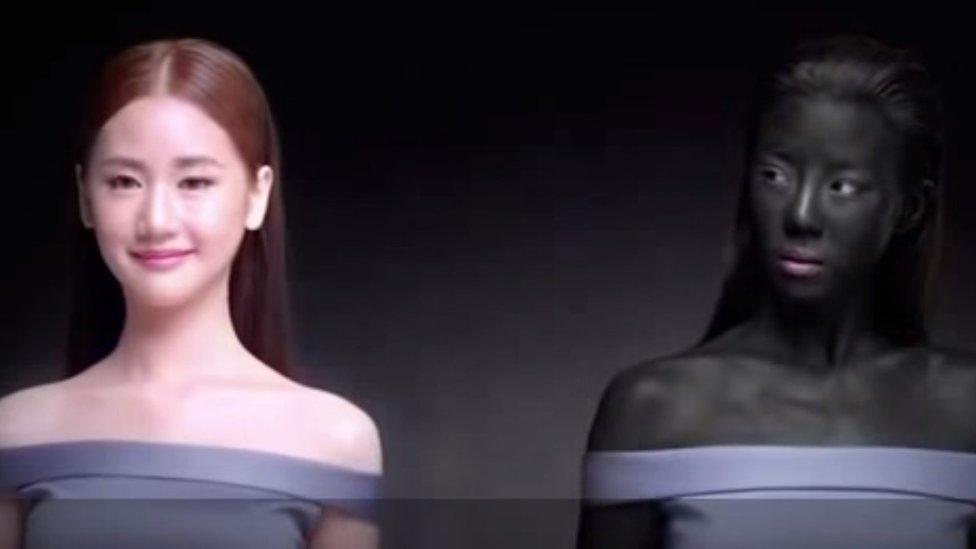
This Thai advert stirred up a storm of debate online, with a lot of commentators calling it racist
In Thailand a "racist" skin-whitening ad was withdrawn earlier this year after being condemned as racist.
And racist advertising has a long and global pedigree
Of course overtly racist advertising has been found in Britain and the US as well.
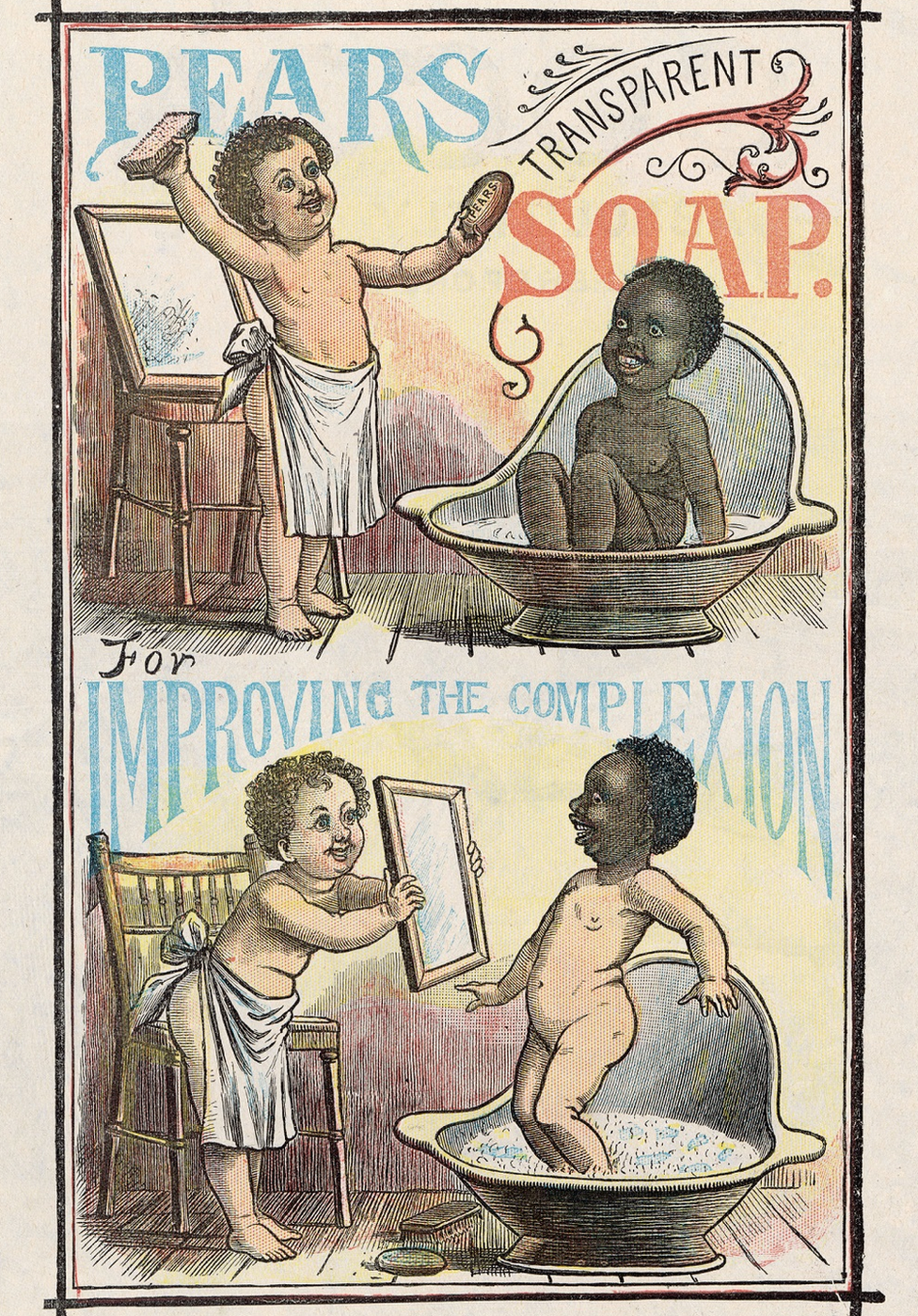
British and US advertisements for Pears Soap dating from the early 19th Century pushed the racist stereotype of black skin as dirty, external and white as somehow pure and desirable.
Reporting by the BBC's Grace Tsoi, Vincent Ni, Heather Chen and Kerry Allen.
- Published6 April 2016
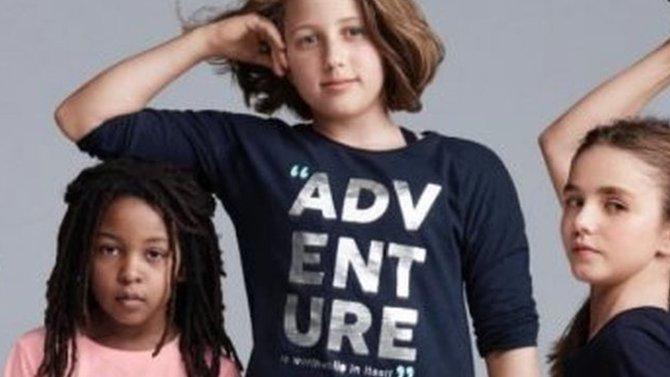
- Published15 March 2016
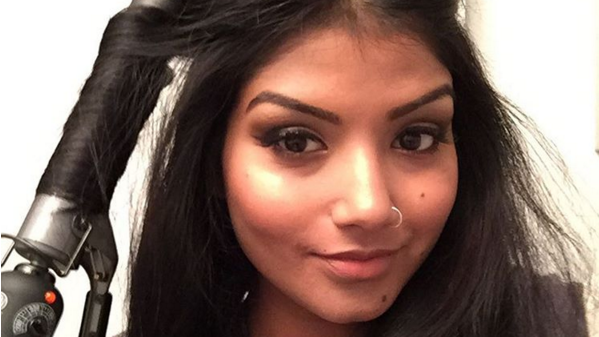
- Published8 January 2016
